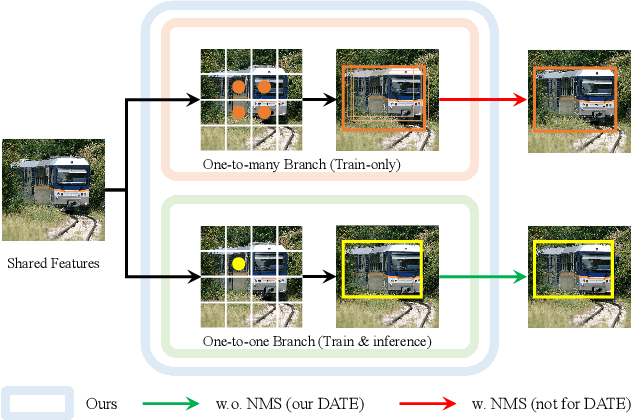DATE: Dual Assignment for End-to-End Fully Convolutional Object Detection
Paper and Code
Nov 25, 2022



Fully convolutional detectors discard the one-to-many assignment and adopt a one-to-one assigning strategy to achieve end-to-end detection but suffer from the slow convergence issue. In this paper, we revisit these two assignment methods and find that bringing one-to-many assignment back to end-to-end fully convolutional detectors helps with model convergence. Based on this observation, we propose {\em \textbf{D}ual \textbf{A}ssignment} for end-to-end fully convolutional de\textbf{TE}ction (DATE). Our method constructs two branches with one-to-many and one-to-one assignment during training and speeds up the convergence of the one-to-one assignment branch by providing more supervision signals. DATE only uses the branch with the one-to-one matching strategy for model inference, which doesn't bring inference overhead. Experimental results show that Dual Assignment gives nontrivial improvements and speeds up model convergence upon OneNet and DeFCN. Code: https://github.com/YiqunChen1999/date.
 Add to Chrome
Add to Chrome Add to Firefox
Add to Firefox Add to Edge
Add to Edge